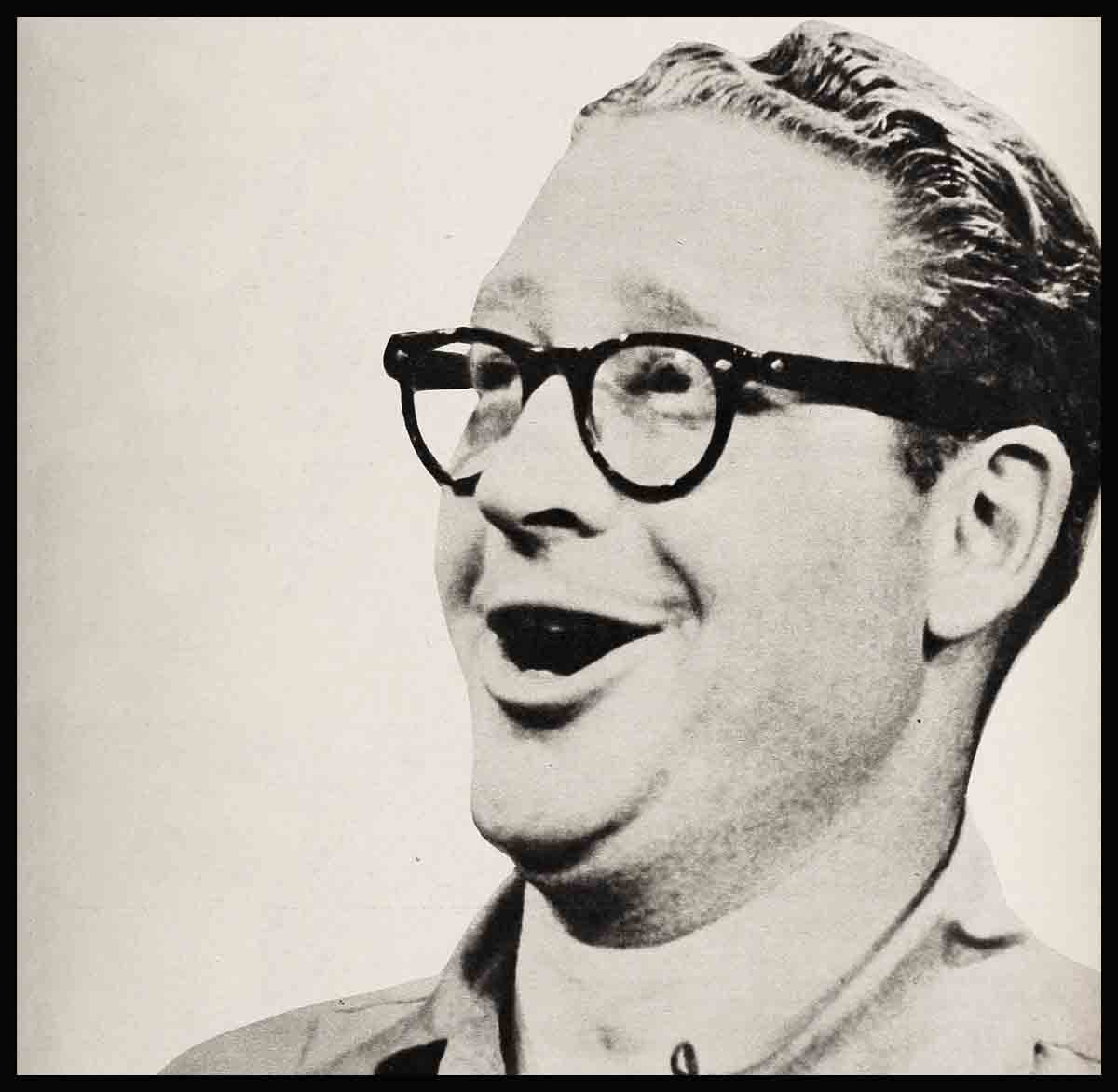
Man Of Note—Red Benson
NBC network’s television quiz show, “Name That Tune,” had as a guest Roy Campanella, the Brooklyn Dodgers’ ace catcher.
The first pitch to him was a curve in the shape of the melody and all Roy had to do was name it—a snap for anyone old enough to hum.
“Roy recognized the tune,” said Red Benson, the show’s emcee, “and you could see that he was straining to say its name. Then I realized that he had a mental block—it was the word Yankee! Being a loyal Dodger, Roy simply couldn’t say ‘Yankee Doodle Dandy!’ ”
Contretemps such as this are a weekly event with quizmaster Benson, who takes them in his (fast) stride. Fast is the word for his show. “I wish I had time to laugh at that!” he said when a guest pulled a whopper on a recent show—and kept the show moving on its merry way with no time out, in sharp contrast to a certain panel show, whose panelists spend more time congratulating each other than they do on the contestants.
Merely one reason why Red Benson is interesting. Another would be the fact that he’s one of the new crop of performers. The new crop first harvested by radio, with newer strains developed by TV. Red and the others like him are miles away from the sideshow-barkers-turned-emcees of vaudeville days.
Mister Benson, for example, was a psychology major at Ohio State University. He’s intelligent, literate, has varied interests, can even enter and leave a drawing room as smoothly as Basil Rathbone can.
On the other hand, Mister B. isn’t one of these college campus heroes who thinks he knows more about show biz than the Shuberts. Red, as you’ll hear, has labored long and hard in radio, the theatre, and TV—not to mention sojourns in a dozen assorted fields—with practically the sole exception of undertaking.
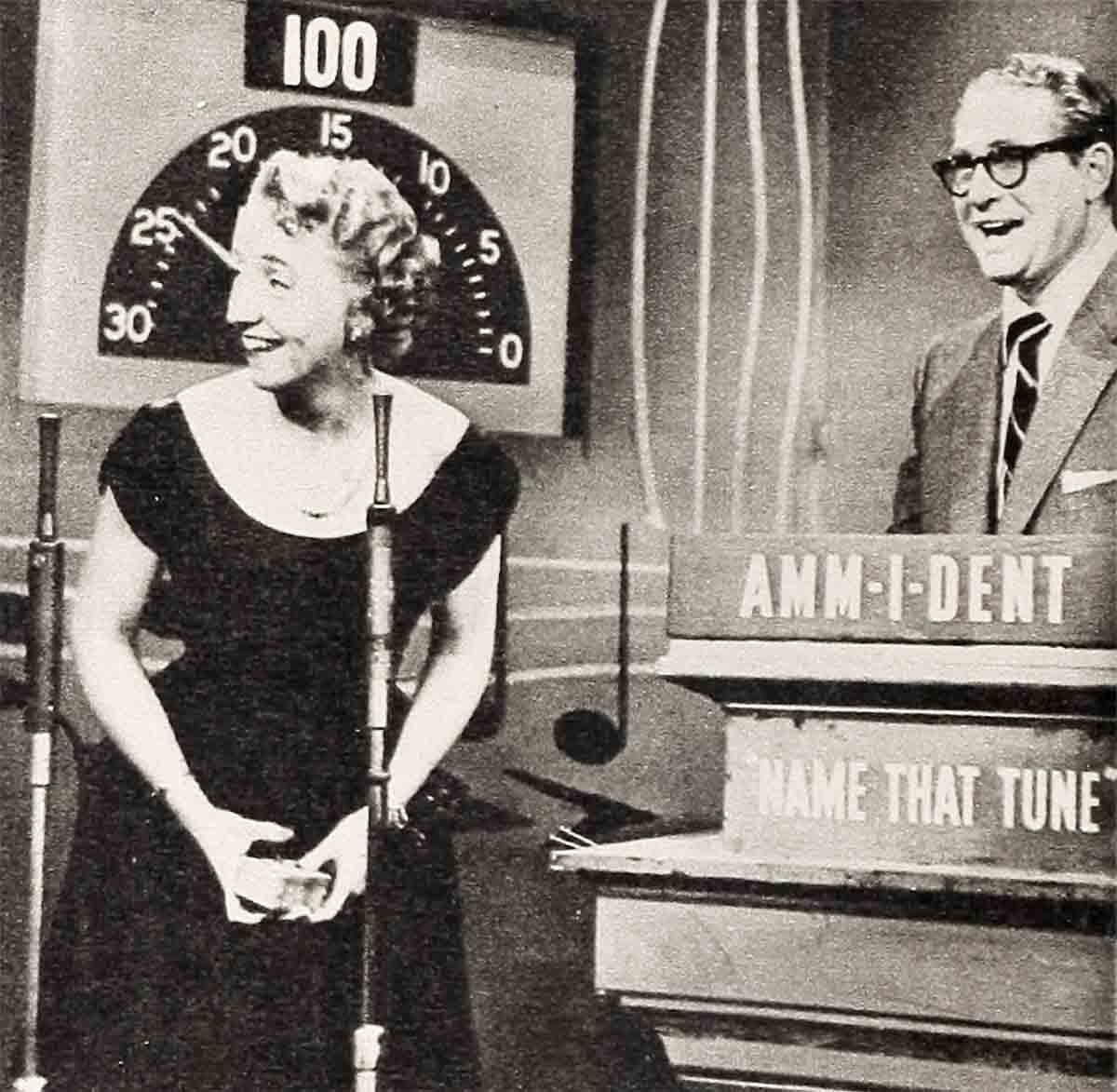
“As the best people know,” said Red (born Norman, if you’ll pardon the expression), “on our show, the contestants win by identifying the tunes which Harry Salter plays, Vicki Mills and I sing. The song titles are disguised in Chinese, Icelandic, and worse. Naturally, on an ad-lib show, accidents happen.
“Such as the time a contestant, puzzling over an apache-dance song, was told it was about someone being dragged all over the floor. The man thought hard, then burst into a beatific smile as he yelled: ‘Black Bottom!’
“And the lady—needing help—who was told that the song had to do with an antique in the parlor (“Old Spinning Wheel”). That was all she needed to know, she had the answer—it was: ‘Grandpa!’
“All fluffs aside, I once worked with Margaret Truman,” Red added, “and I was literally bowled over by her good looks. Her photos don’t half do her justice! As I remember, I said something about her pretty blonde hair. ‘It’s always been that color, too!’ she said quickly, and grinned at me.”
Red and I spoke of mike fright, and psychologist Benson snorted. After he finished snorting, he said: “A microphone and strange surroundings scare people sometimes—but they have no business being scared. These same people aren’t the least bit frightened when they pick up a telephone and say: ‘Hello, this is Eddie’s Egg House,’ or what have you. Properly-handled, radio and TV are as friendly as your phone. A word of warning—if you’re going on the air, better be sure your emcee knows his stuff.”
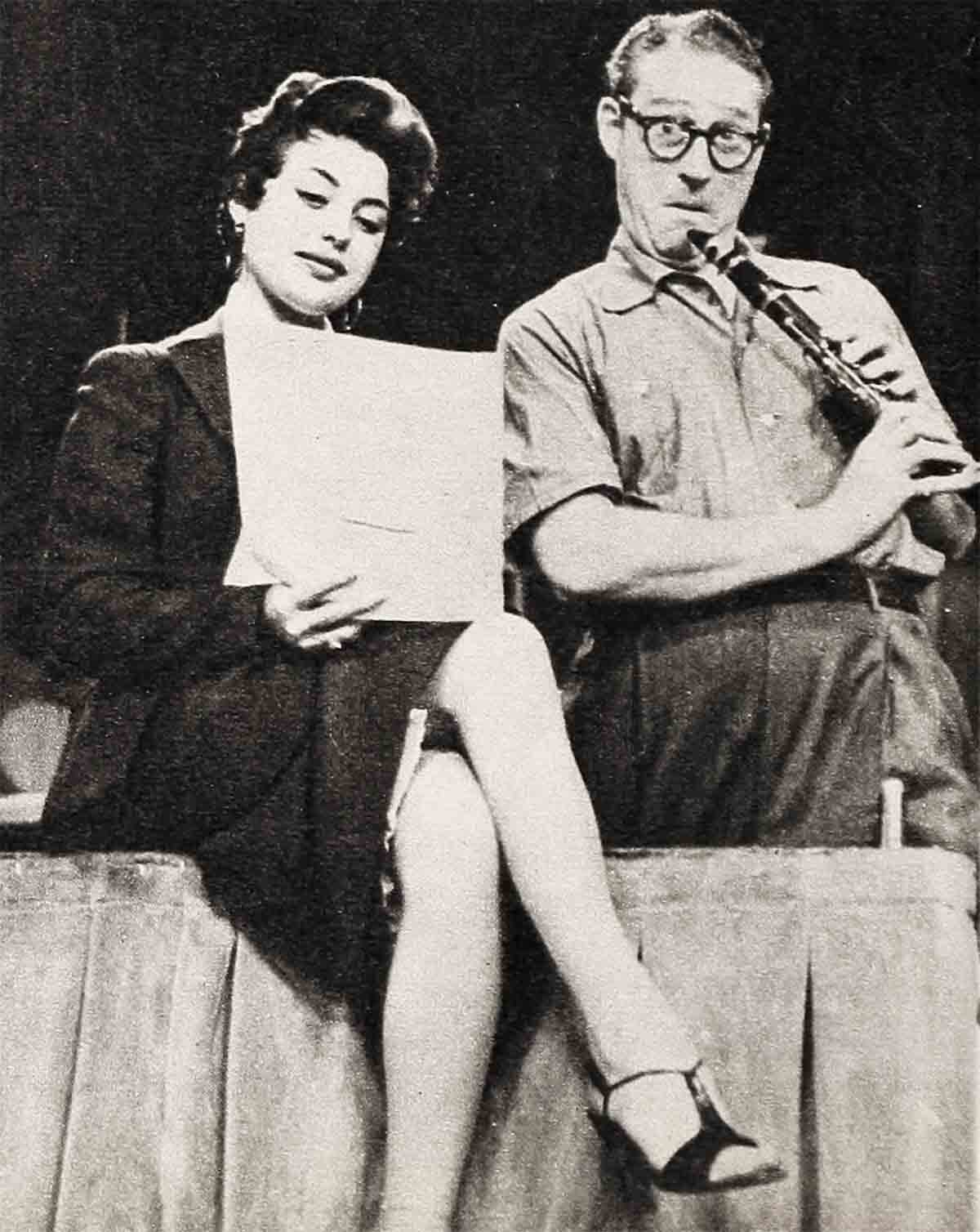
Such as Dr. Benson, who boasts that he’s never had a contestant freeze on him. His easy-as-telephoning secret? “I listen,” he says, “that’s the answer. A poor emcee asks a question, then ignores his victim while he works up his next question—the deserted subject naturally gets the chills. But if the victim is engrossed in a two-way conversation with an interested quizman, he forgets his stage fright.”
Red also notes that: The first 30 seconds count the most. .. . The contestants themselves should be the meat of the show—they should be encouraged to be the comics. . . . Red feels he’s a good picker of contestants—an important item. . . . “Children make the best contestants,” he says, “but you must remember that they’re so brutally honest, they’re certain to spot anything phony. I’m wondering what we can offer kids 10 years from now—since they’re a step ahead of us today. . . .”
“Name That Tune” is alternately sponsored by a watchband (Speidel), and a toothpaste (Amm-i-dent). Red wears one of the bands, will bare his teeth on demand. Or, you may see for yourself Monday evenings, NBC, at 8:00 (EST), when he opens his mouth to warble: “Mar Toro Doost Me Daram” (Persian for “I Get A Kick Out Of You”).
One way of singing the title of the tune in question without giving away the answer. Of course, if you are a Turk, he won’t fool you with: “La Zoom, Tango Yeah E Ke” (“It Takes Two To Tango”). More? Icelandic: “Tru Etha Me-Et Eke” (“Why Don’t You Believe Me?”). Burmese: “Am’ Yeh Goo-Goo-Ney” (“Just A Gigolo”).Egyptian: “Tah Lee Lee Schwa Yee Sway Sway Yah” (“Cuddle Up A Little Closer”). Of course, Mark Antony crooned that last one to Cleo long before Benson aired it. . . .
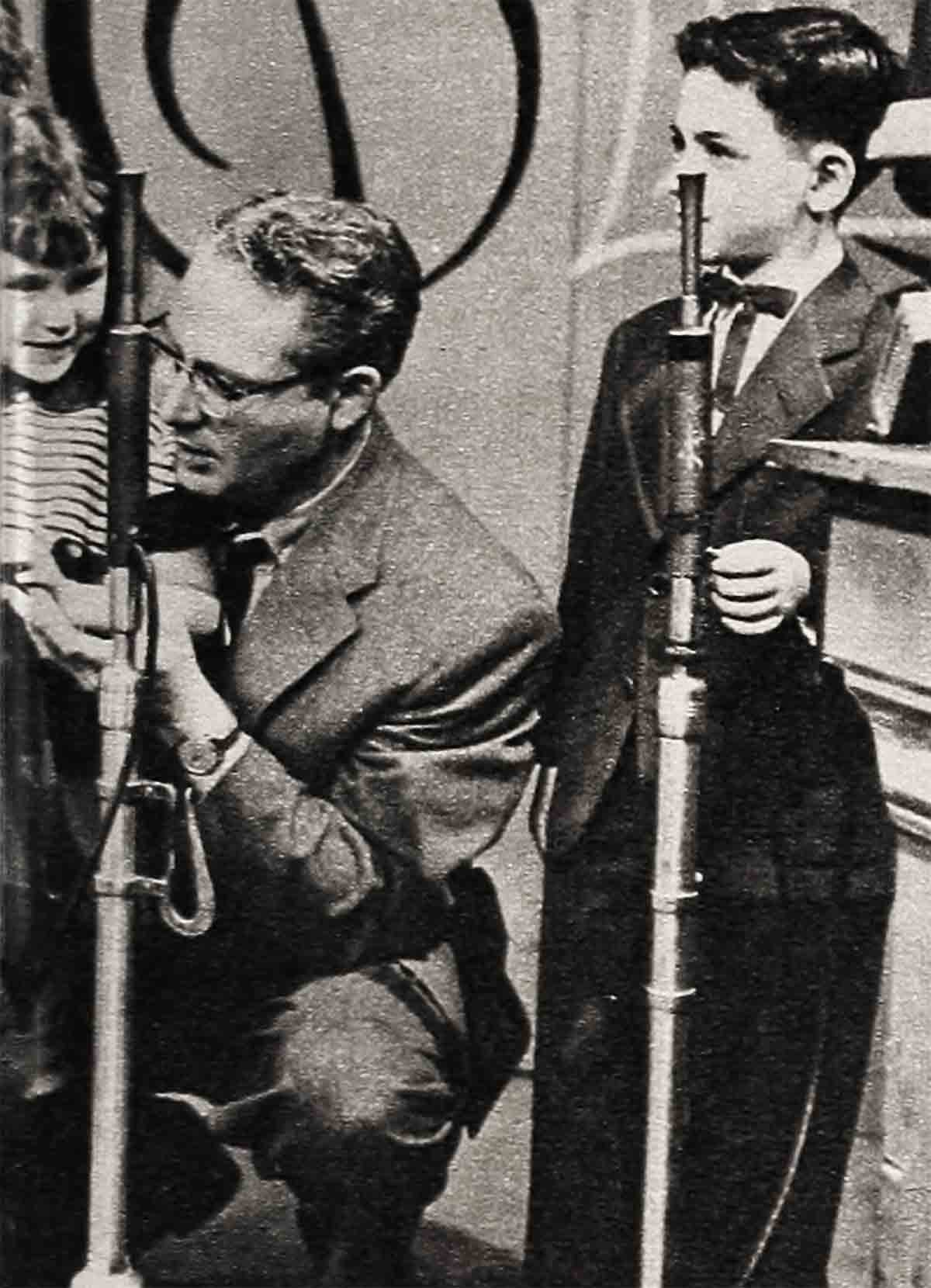
“Many people do our translating,” says Red. “UN secretaries, foreign students and journalists—I reduce the results to phonetics. Languages that involve tones are tricky, but I luckily have a trick ear—involuntarily pick up any accent I’m close to.”
Red—one of the first to capitalize on his horn-rimmed glasses—is also emcee of a six-year-old radio quiz (“Take A Number,” Mutual radio network). But, as Red says, TV does more for a performer than radio can hope to. And color television—according to Red’s admiring press agent, Hal Golden—was developed solely to let Red’s fans see his auburn-colored locks. Locks which once had Red all keyed up, because: “No one would call me Red until I started it myself—I still don’t see why not. . . .” Could be that—man & boy—Norman Benson has had a great deal more than red hair to his credit. In my 20 years of interviewing the great & near-great of movies, radio & TV, I’ve seldom met a more interesting, or better-grounded gent than Red. The assembled data in this article should partially prove my claim. . . .
Come over here and I’ll introduce you to Red. Reader, this is Red Benson, you two should like each other. You’ll find that Red is far from prissy, tells wonderfully-funny stories, makes a party go. He’s 35, has a round, amiable face, and has worked at every trade there is. Elevator operator, professional hypnotist, bandleader, actor (Shakespeare), fireman, canary salesman, window trimmer, prizefighter, light-opera singer, hat manufacturer, vegetable huckster, and more.
As you heard, Red’s not a wise college boy who knows more about the entertainment world than Variety—he’s had it. His family had moved to Philadelphia, making it easier for fate to see to it that Red became a star of the Horn & Hardart kid radio show (along with Kitty Kallen and Ezra Stone). This was 1933, and events led to a scholarship to a New York drama school, which Red bypassed in favor of nightclub work—practice, not theory, or, “Quee Nee See Sah E En Dou May,” the Zulu for accentuate the positive.
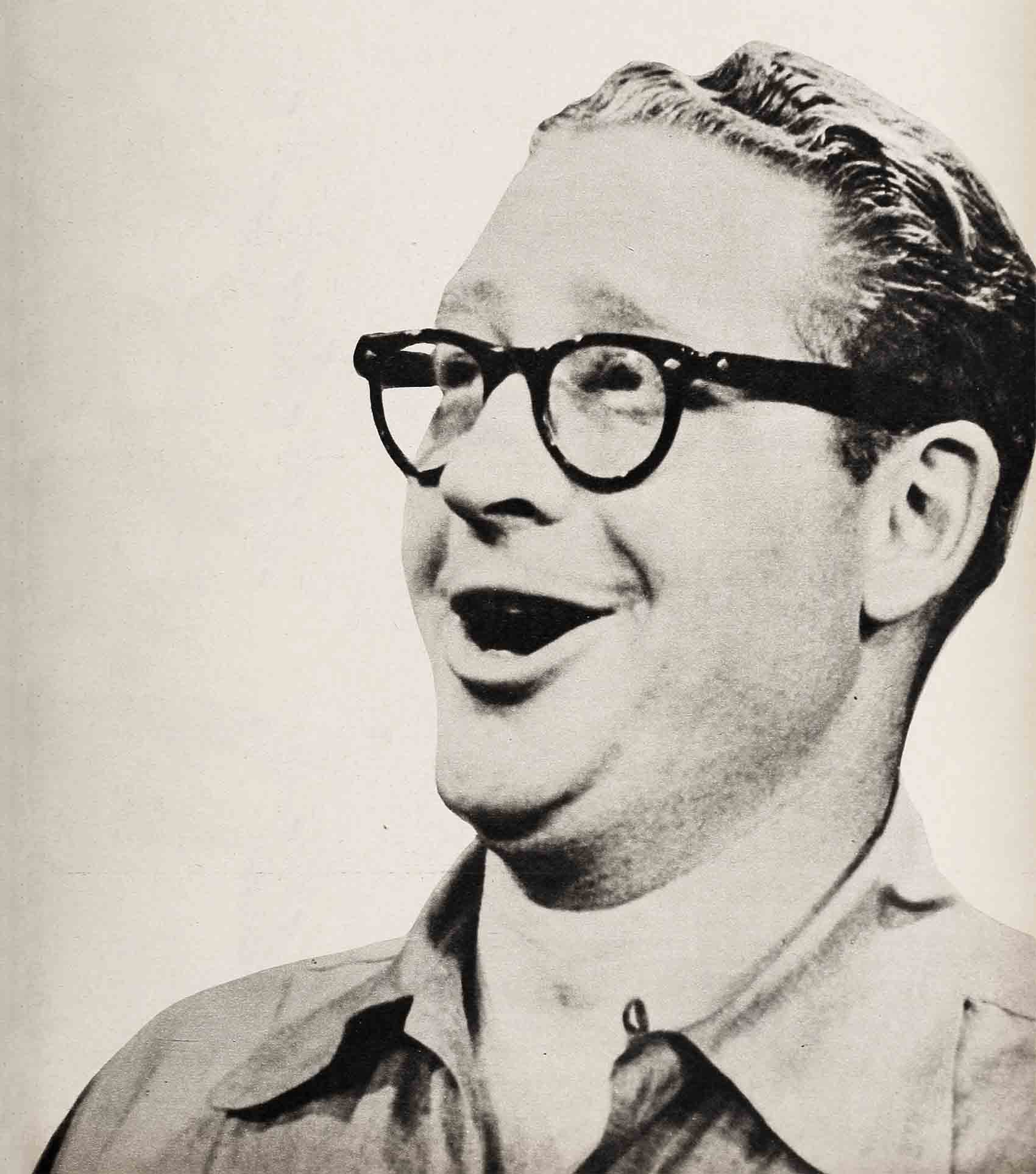
In addition to the jobs listed previously, Red has also been a magician. He knotted a handkerchief around my wrist so tight it hurt—then flipped it off (still knotted) with one quick move. He dropped a penny (my own, not a trick one) into my palm, ordered me to close my hand, and when I opened it (without further contact with Red The Great), the penny had become a nickel. My reaction, and probably yours too—why work, if you have tricks like that up your sleeve?
Red casually pulled a lighted cigaret out of the air, looked at it, scowled, said: “Not my brand!” tossed it aside, grabbed another from the air, said: “That’s better!” and went on talking. “I’m not master-of,” he said, “but I know many trades—which is at least a help in dealing with TV contestants.” He absentmindedly bent a spoon completely out of shape—opened his hand and showed that it had only been twisted in illusion.
Back there—Red went to Ohio State University, tackled the legitimate stage, then became a radio announcer in Philly. “It was too big,” he says, in line with the experts’ advice, i. e., get your radio or TV start with a small-town station. Red quit Philly, got a job in Reading (Pa.), with a radio station where he swept up, did the accounting, wrote, directed, produced, acted, and “sort of began to unfold.”
The budding star moved to Jersey City, and WAAT. Time out for war & the Navy, but afterwards, instead of returning to WAAT, he decided he had faith in Red and attacked New York City. He was now a married man, having wed Fleurette, who gave up a medical course to latch onto an obvious magician. Red & Flippy have two little Benson burners named Susan (11), and Stephen (4).
The time was 1946, and Red’s New York attack a success—night clubs, radio jobs, and a TV comedy show that was being heard by a vast audience of 2300 families. Red called his new, disk-jockey job, with New York’s WINS, a step up. Assorted radio & TV shows followed, with such snazzy names as: “Phrase That Pays,” “Red Benson’s Almanac,” “Sing For Your Supper,” “Julie And Red,” “Prince Charming,” and “Take A Number” (still going strong, with Prince Charming, on Mutual’s radio network).
“Name That Tune” came Red’s way a year ago. “A big network TV show such as ‘Tune’,” he says, “has done more to build up my name than 17 years of other media.”
Red is an old-fashioned critter who still reads books—and fast, as is proper. Loves science fiction, as well as heavy stuff. . . . Is a convert to high-fidelity record reproduction, finds his workshop comes in handy, here. The workshop is in their newish Great Neck, L. I., home. . . . He’s a home-movie addict—has miles of film of his pet movie stars (Flippy, Susie & Steve). . . . Does some art work—not enough to worry Winston. . . . Raises tropical fish. . . . Does the Sunday Times (tough) crossword puzzle in its entirety, each week—is a no-dictionary man. . . . Plays the “Take A Number” quiz show himself as it rolls along (by not looking at the answers until the contestant has answered, then checking his & their answers). . . . Admits he’s a good salesman—also admits he’s a sucker for another good salesman—attention all mailing lists. . . . Likes boating & fishing. . . . Has written tunes that have been published, such as “Rosalinda,” “Slap Her Down Again, Pa,” and “He Asked You,” among others. When I saw him, he was clutching a recording Eileen Barton had made of one of his tunes—was afraid someone might steal the priceless treasure. . . . When I asked him if he could cook, he exploded: “I’m a great cook! Sensational on the range! Also, I’m a depression cook—cheap but filling dishes.” Nowadays, Red can afford to create exotic sauces—of course favors garlic & onions. Would like to eat sea food, but can’t get to like it—calls himself a meat & potatoes guy. Sums up his culinary versatility with: “I’m a facile cook—who is aware that the single ingredient that marks the Cordon Bleu chef is love. . . .”
When he was asked what marks distinguished the good emcee, Red answered: “The utopian emcee—the perfect such—should be able to do anything anyone else can do, whether it be singing, dancing, wise-cracking, ad-libbing, carpentry, weaving, figure-skating, or what have you.” He also thinks the super-emcee should know what to leave out (same as the editing which makes all good writing better).
Getting personal about it, he added: “As an emcee, I’m not Red Benson—I’m playing a role.”
THE END
BY WILLIAM LYNCH VALLEE
It is a quote. SCREENLAND MAGAZINE APRIL 1954


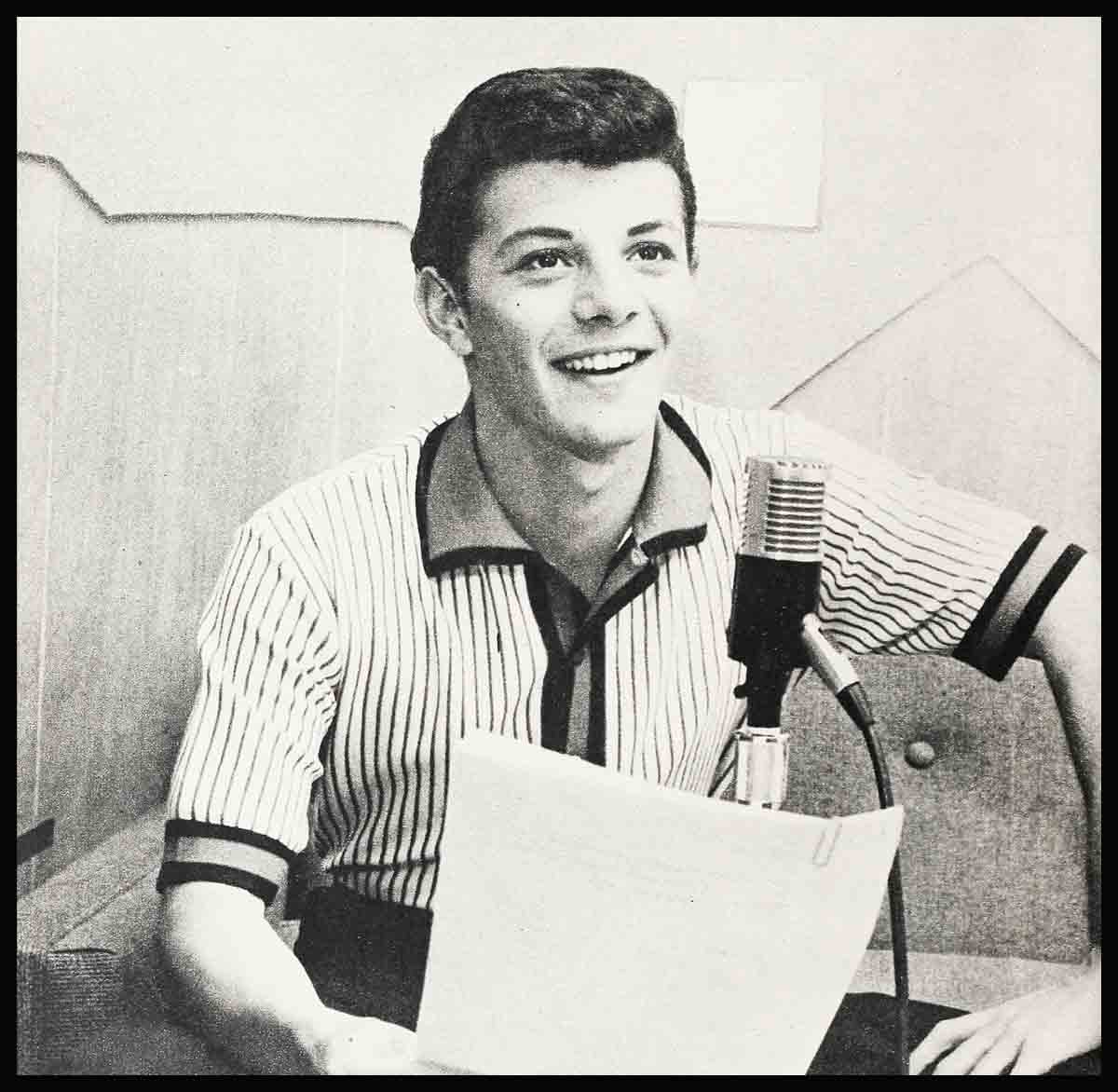
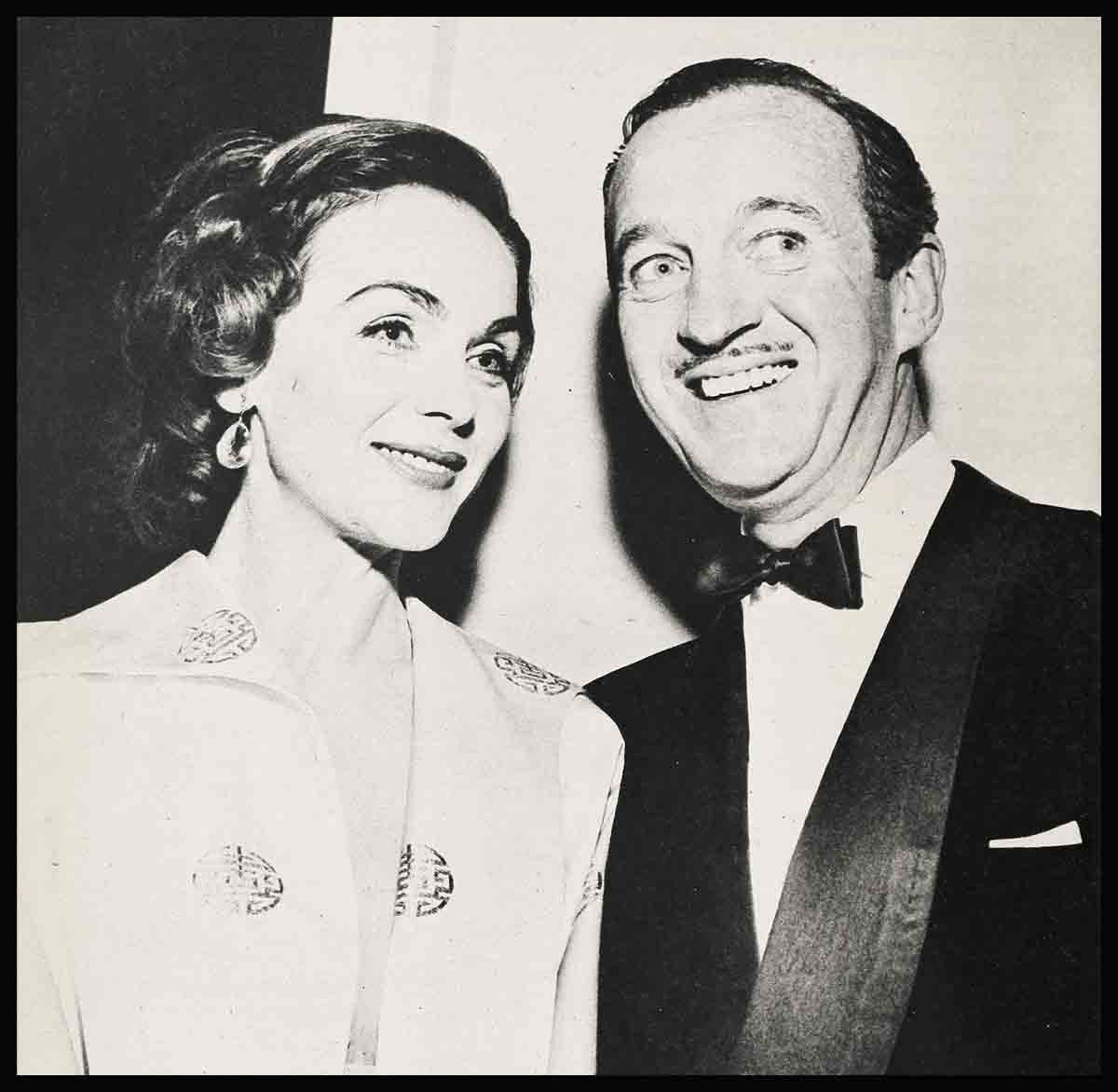
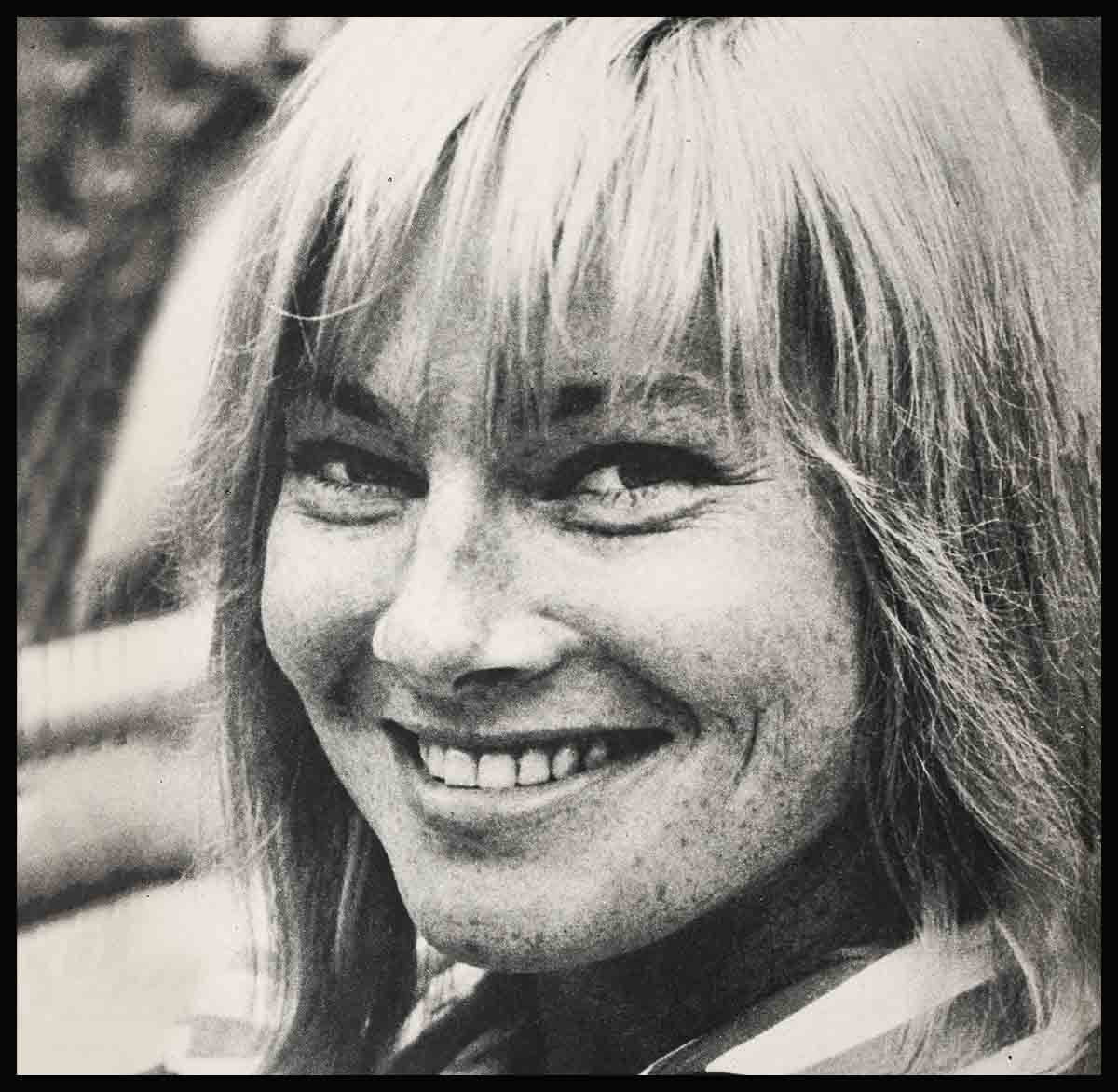
No Comments